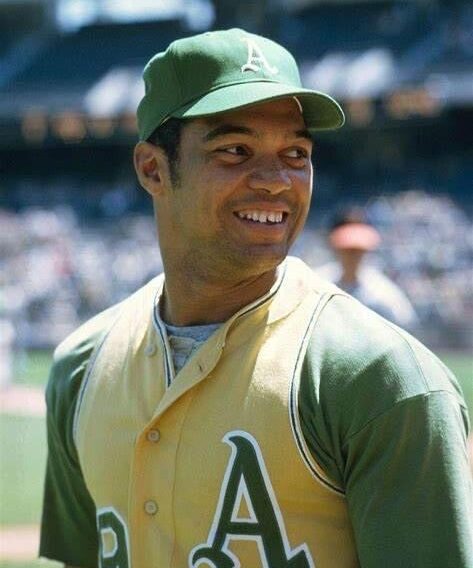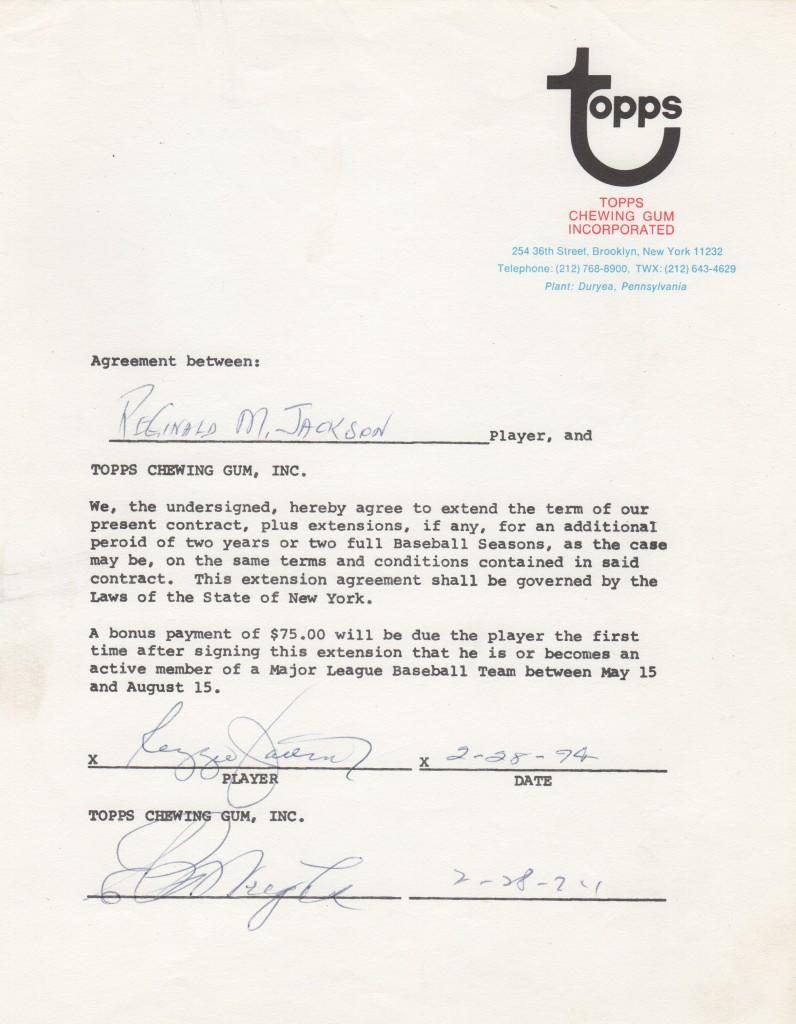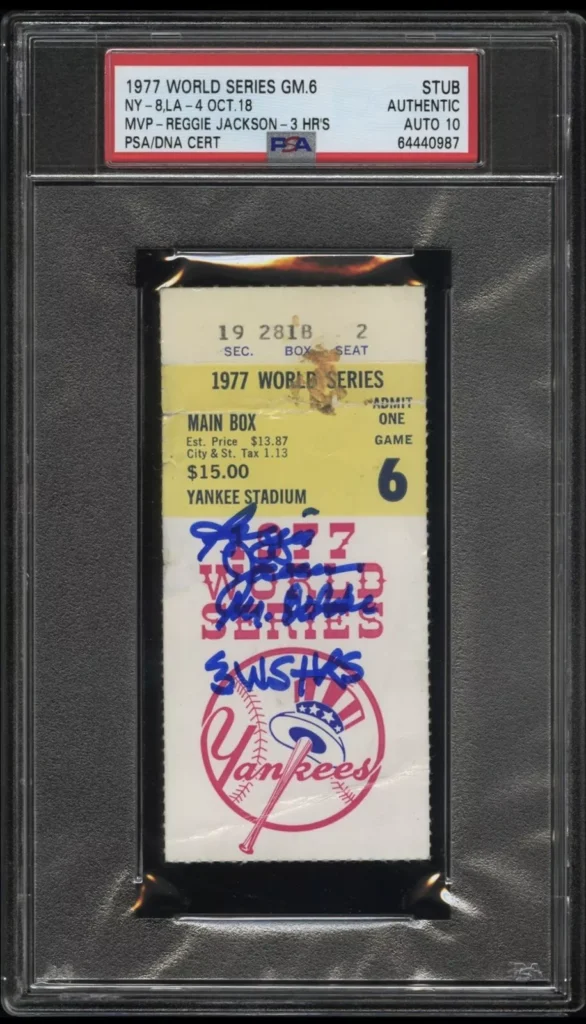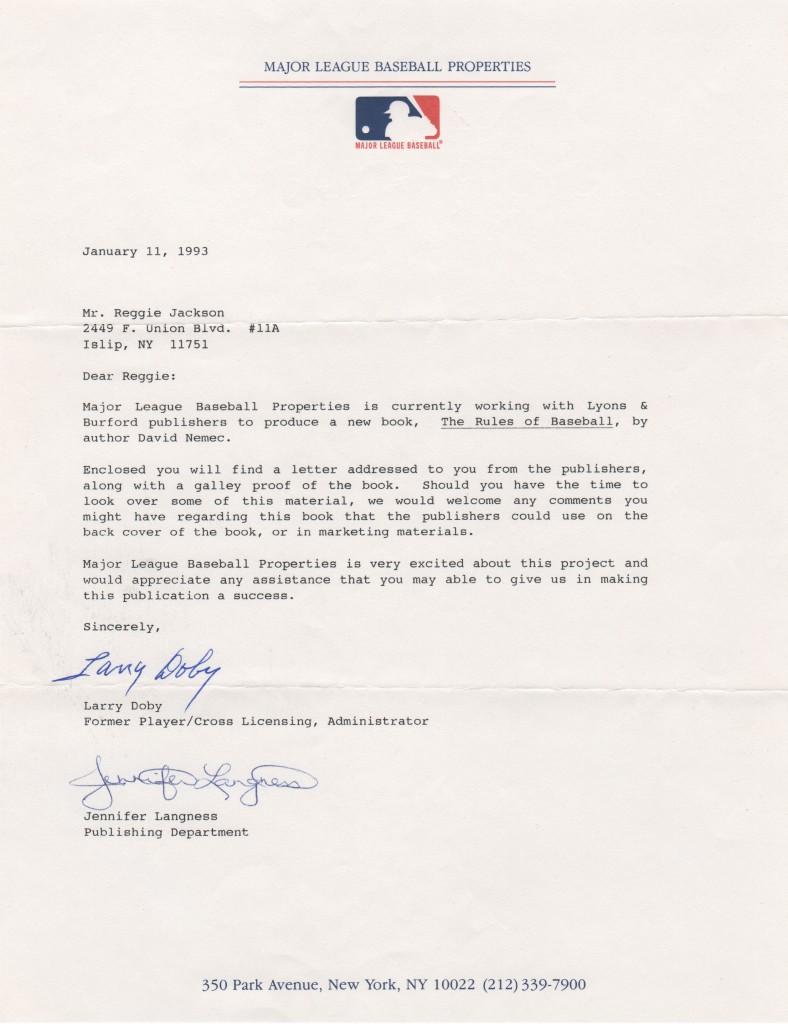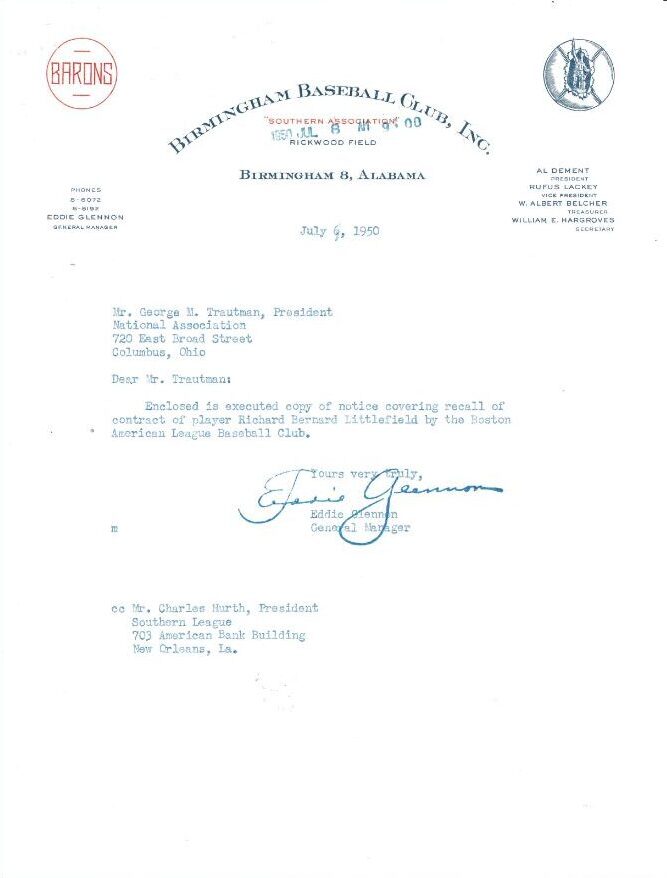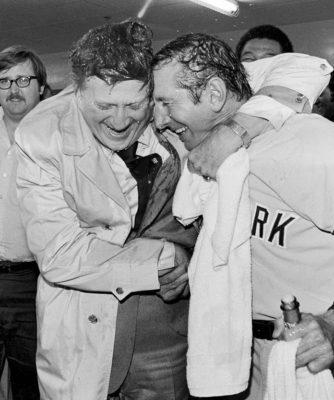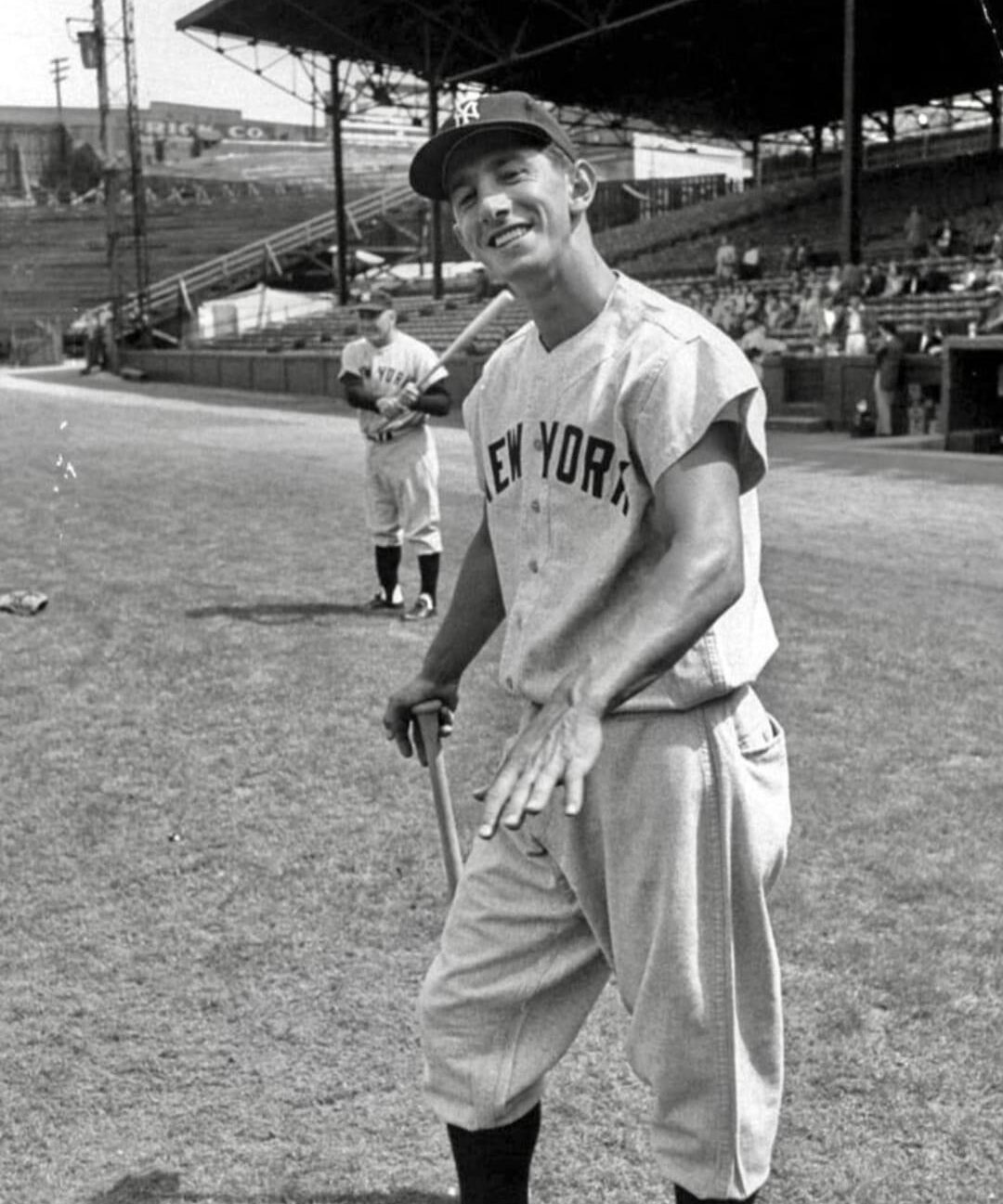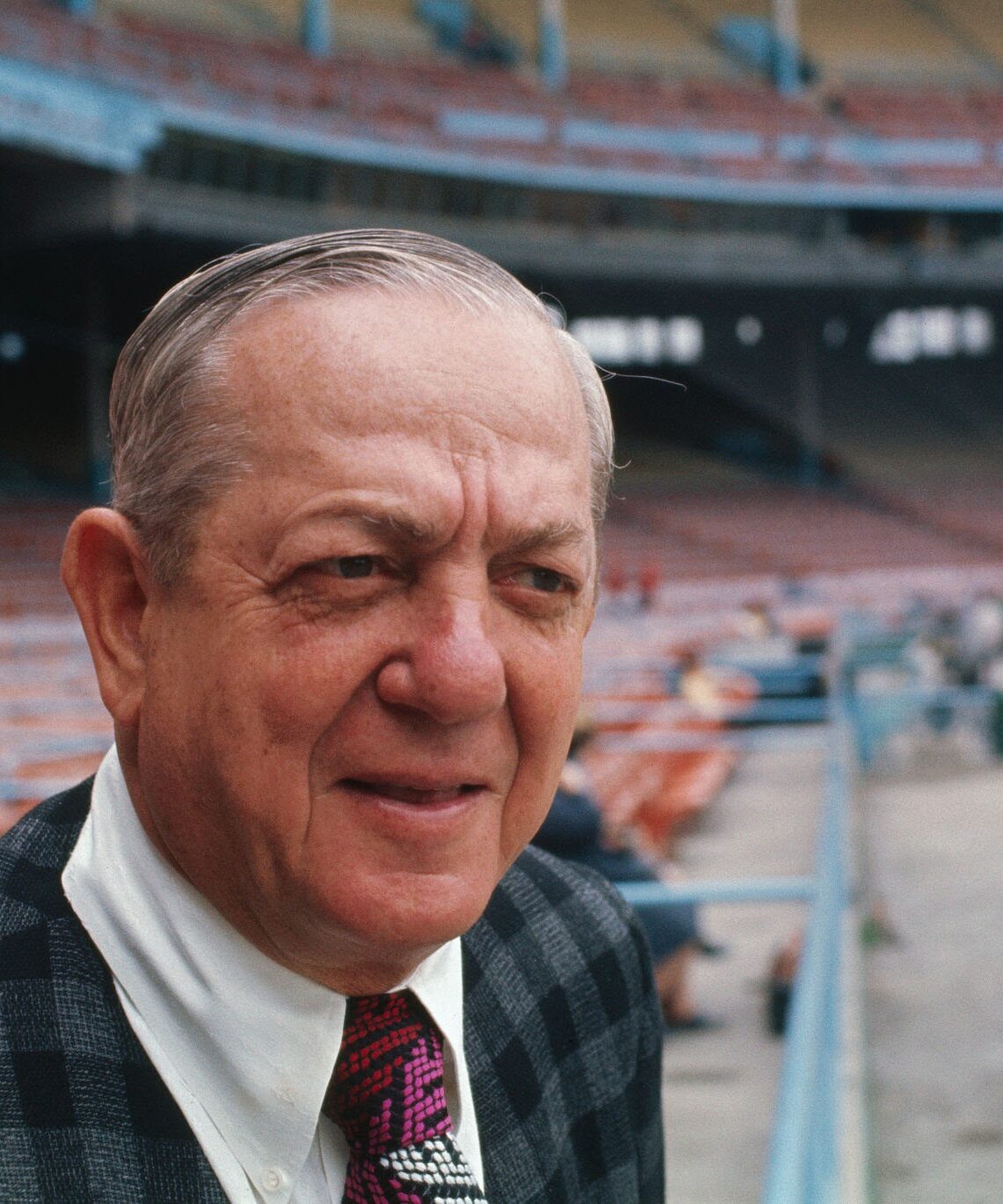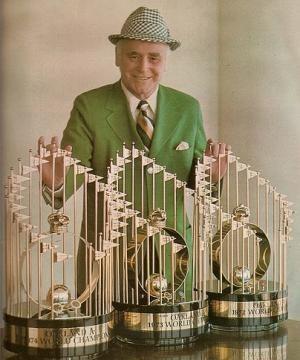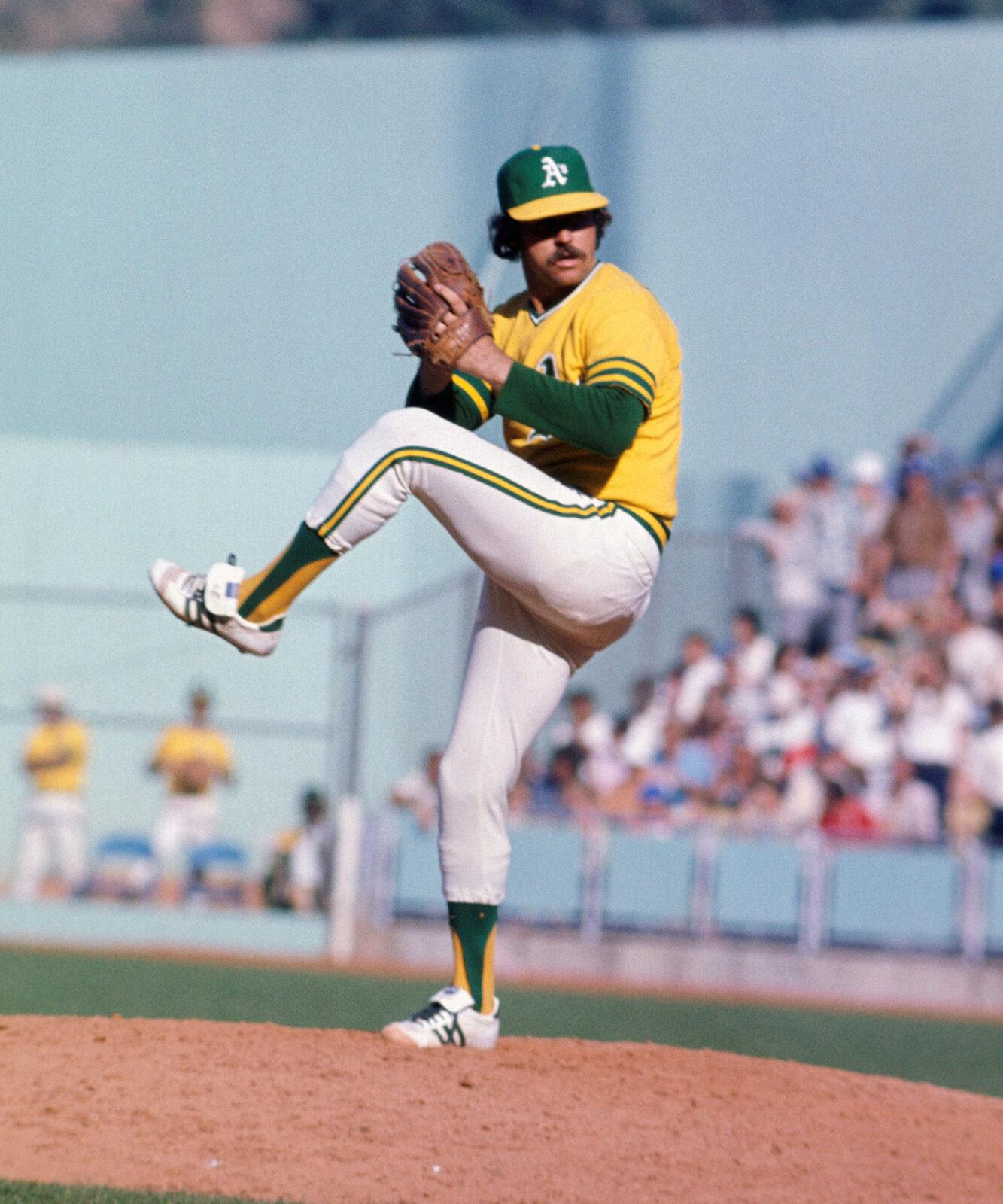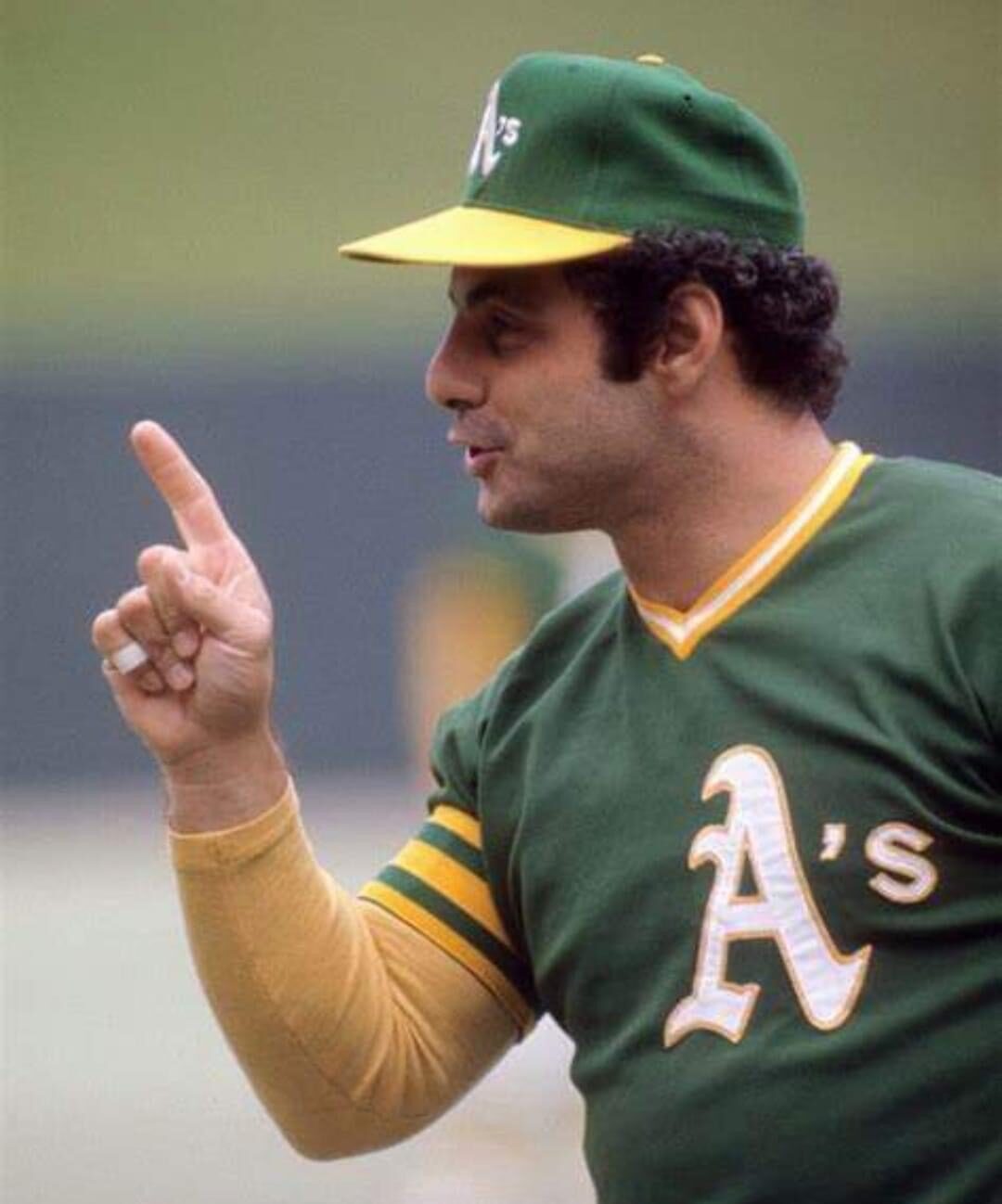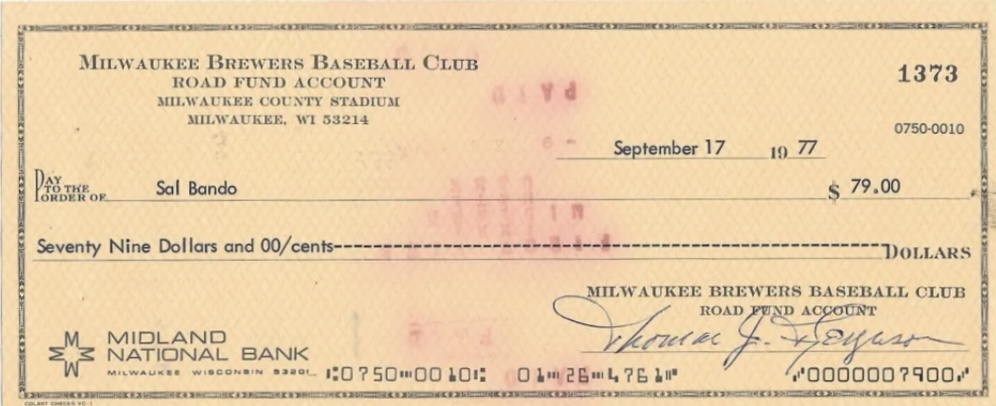
“Sal Bando was the godfather. Capo di capo. Boss of all bosses on the Oakland A’s. We all had our roles, we all contributed, but Sal was the leader and everyone knew it.”
— Reggie Jackson in his 1984 autobiography
From Mr. October, the straw stirred the drink for the Yankees in the Big Apple that’s high praise. Reggie first got to see Bando’s leadership in college at Arizona State University. In 1965 ASU won it all with Bando as the College World Series Most Outstanding Player.
The three-time World Series champs of the 1970s, Oakland’s Swingin’ A’s, were full of strong personalities and accomplished players. Led by eccentric owner, Charlie Finley, the team boasted three men who claimed the MVP Award during their careers in Jackson, Vida Blue, and Rollie Fingers.
The talented roster featured Cy Young Award winner and Cooperstown man Catfish Hunter, two-time 20-game winner Ken Holtzman, 6-time All Star Bert Campaneris, and World Series MVP Gene Tenace.
On the star-studded squad, it was Bando who was team captain from 1969-1976.
Though his teammates overshadowed him at times, Bando was solid. During his years as captain he averaged 23 homes and 90 RBI and walks per season while posting a 131 OPS+.
Those who take a more analytic approach using advanced metrics believe Bando has a strong case for the Hall of Fame.
Shown here is a check made out to Bando from the Brewers in his first year in Milwaukee. Click here to see Bando’s page on this site.
